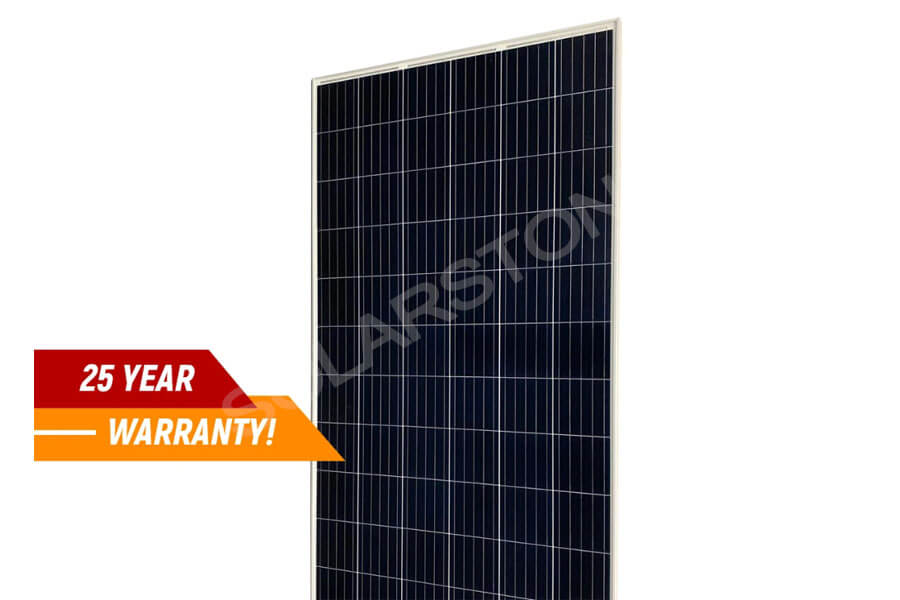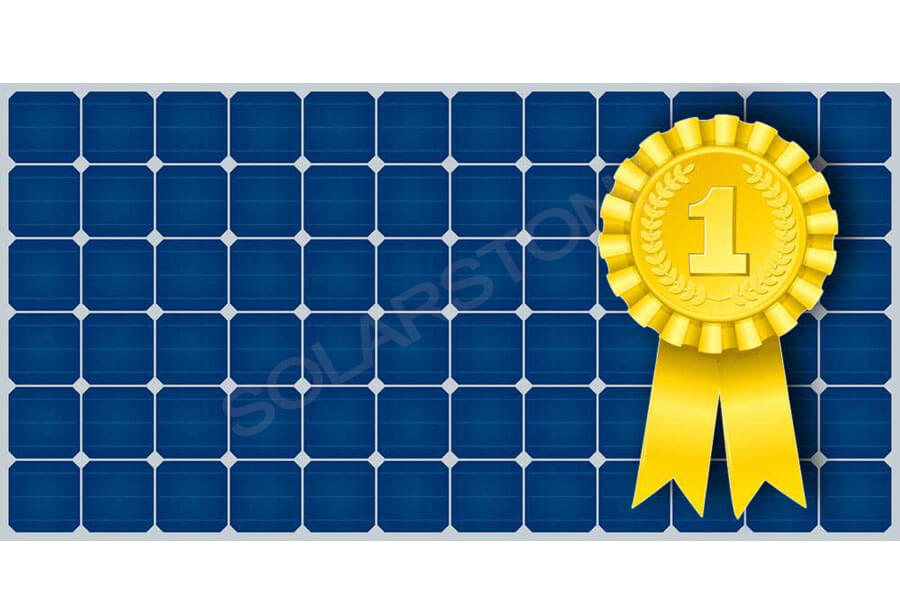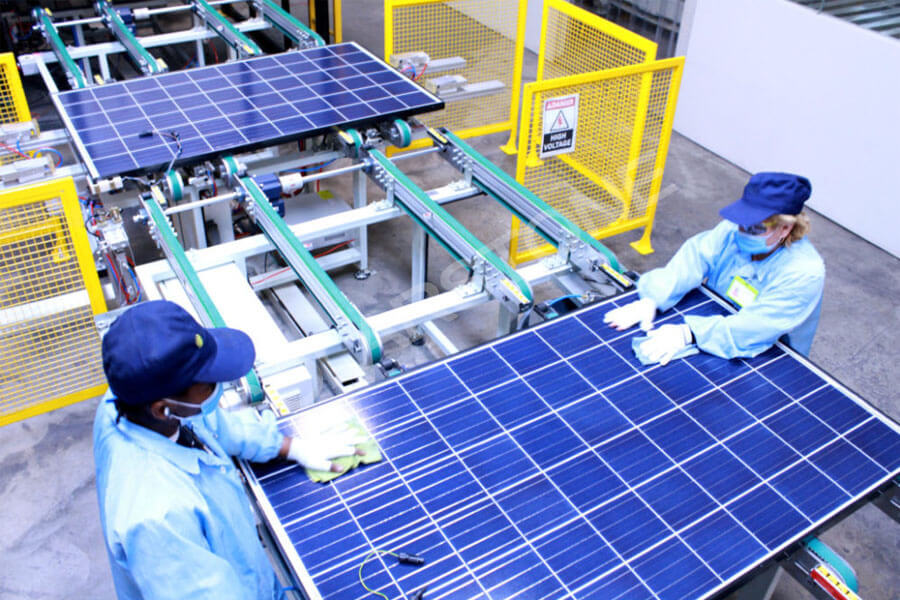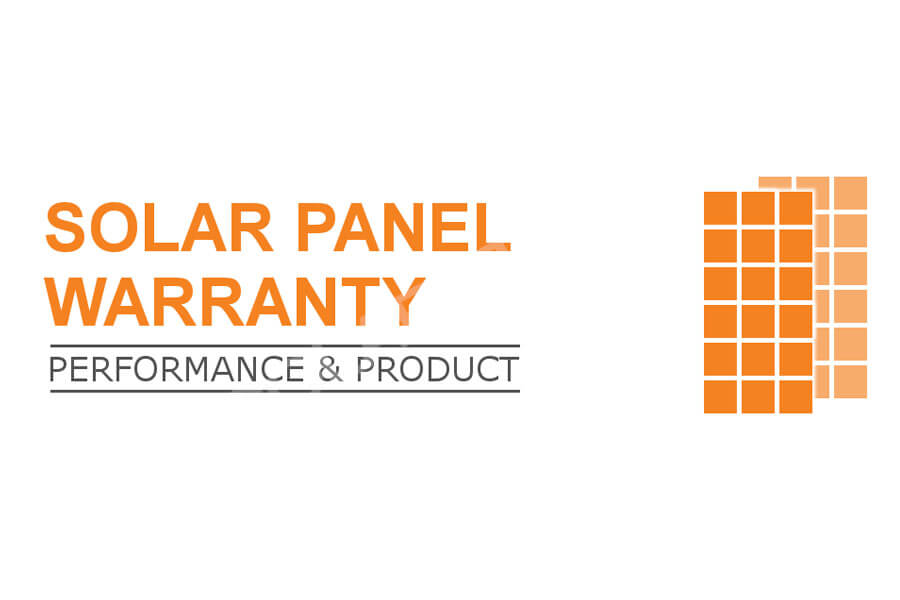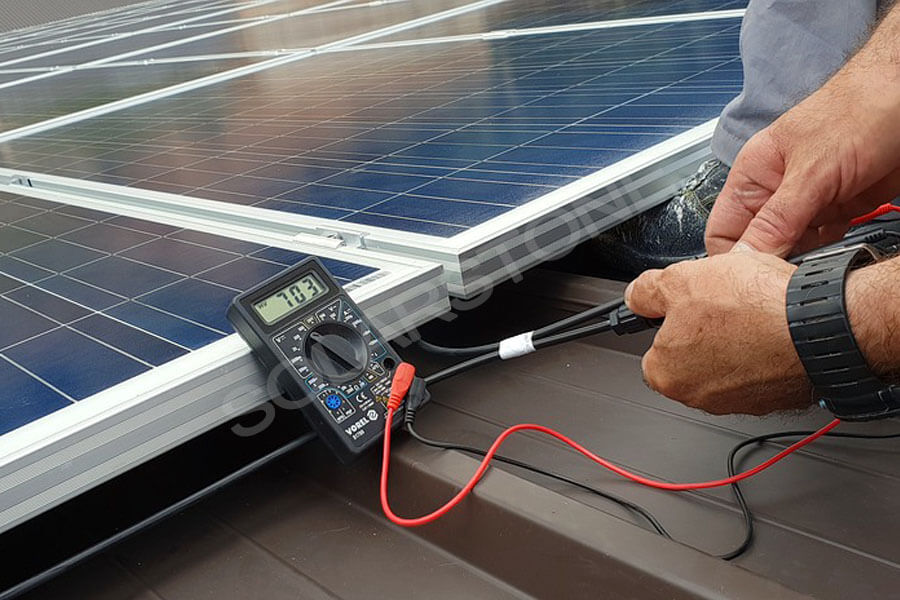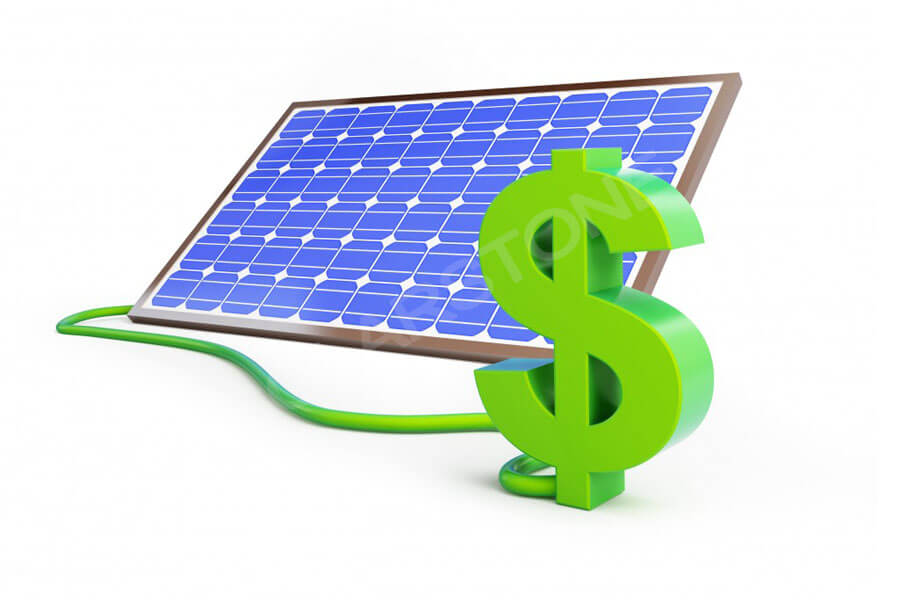As one of the fastest-growing industries, the photovoltaic market is full of comments and slogans, so consumers are prone to enter many misunderstandings when buying.
Solar panels look the same. Are they really the same?
According to relevant statistics, more than 500 brands of solar panels are sold in the market, which is difficult to distinguish even photovoltaic experts. Here are some typical information on labels and specifications – which does not mean they are identical:
10 years product warranty
25 year linear warranty
Power level (e.g. 250wp/260wp)
Global solar panel manufacturers are committed to expanding their market share by producing high-standard products, which require high-level research and development, such as exposure to different environments for testing and product life cycle testing. Retailers and consumers, however, don’t value that much.
The best way to get out of this mistake is to look at the seller’s project cases in other countries. If the other party provides cases of their PV system in large projects in many regions, it can also be proved that the photovoltaic system can be used in your place.
Distinguish kW, kWp, and kWh
Consumers who know little about photovoltaic technology may have many questions about it. These words are often mentioned when you buy photovoltaic systems at retailers.
For example, the name “5 kW” system is commonly used in photovoltaic systems sold in Australia, but it should be strictly referred to as the “5-kW system”.
The “peak” (P) in the peak watt (kWp) means “peak”, which is the sum of the maximum power generation of solar panels under standard conditions (1000w/m2 sunlight).
Kilowatts is the unit of energy measurement. When called kilowatt hour (KWH), it means the amount of electricity used for a period of time at a constant rate.
The use of kW or kWp does not represent the actual performance of solar panels in a day, week, January, or year, which is represented by the data on the maximum potential of solar panel performance. As we say, when a car is 200 kilometers an hour, “200 kilometers” represents only the highest peak speed of a car.
If a particular brand of photovoltaic products is designated or used by large international projects, it is because after independent professional investigation and technical investigation, they believe that the manufacturer has the ability to continuously produce products that can generate stable power year after year.
What does “Tier 1 solar panel manufacturer” mean?
The photovoltaic industry has been committed to developing a methodology for ranking and evaluating solar panel manufacturers for many years. Without quantifiable testing mechanisms, many people have begun to seek the judgment of financial analysts. In many cases, the photovoltaic industry uses tier 1 as a means of quantifying the quality of solar panels.
This hierarchy system is actually a value ranking structure, which has been widely used in financial analysis institutions and enterprises. The most popular definition is “bank discounting”, which is the determinant of whether a project using a brand of solar panels can obtain bank non recourse debt financing.
The definition and explanation of “ranking” also includes the theory of vertical integration of products, the existence of local offices and after-sales support departments, which indirectly reflect the product quality and after-sales service level.
Will the country of origin affect the quality of solar panels?
The method of judging product quality according to the country of origin is very outdated. Consumers may be impulsive to choose products produced in countries with good taste rather than further comparison and screening.
The photovoltaic industry has been one of the fastest growing industries in the manufacturing industry in recent years. However, if the rise of photovoltaic industry cannot keep up with this huge growth, the development track of the industry may be solidified. Many manufacturers tend to diversify and expand their production bases by opening many factories around the world. It is unfair to judge the quality of products by the place of origin, assembly and headquarters.
Retailers suggest that consumers’ methods of identifying product quality only by the country of origin are deceptive and misleading, especially the idea that the quality of products produced in Asian countries is lower than that of other countries is incorrect.
With the increasing market penetration of Chinese photovoltaic brands, the quality gap of solar panels is also uneven. Enterprises that pay attention to product quality can stay in the market at last, while others are eliminated by the market.
Are all solar panel manufacturers offering the same warranty?
Australia is one of the most dynamic domestic photovoltaic markets in the world. It is easy for consumers to think through industry information that if solar panels provide a 25-year linear warranty, the products they buy will be well guaranteed.
In fact, there is no mistake in this idea, but the “guarantee” here is only to some extent.
The 25 year linear warranty represents the performance guarantee of the expected performance and the lowest value of power output year on year. This is different from the overall performance of the system, which is subject to the system design and other components.
Although many consumers buy with the belief that photovoltaic systems will not be problematic, it is misleading. The reasons are as follows:
Although the technical aspect of the product can be well guaranteed, the installation process is operated manually, and the risk of human error is always difficult to estimate.
Transportation problems also affect products, and often the damage of the system in transportation is difficult to be found.
The system is exposed to outdoor environment and is affected by many factors, such as wind, rain, dust, dirt, bird manure, tree shelter, and tree scraping.
So, what problems should consumers first understand when the system fails?
- How do you find problems with the system?
- Whether the system is monitored; Is the monitoring information only available for owner’s viewing or will it be returned to the basic system for communication to the owner, manufacturer and installer?
- How about the installation chamber without knowing or finding it?
- Who provides support for the installer?
- What are your consumer rights and interests?
- Whether the supplier of main parts of the system has an office in the local area? If so, please find the location of the office and their phone number.
- If you have evidence that the performance of the photovoltaic system you purchased is lower than the design standard, then linear warranty can play a role in this time. Also, it is best to complete the assessment report by the retailer or installer who sold to your system. If retailers and installers cannot be found, hire reputable and industry qualified professionals to produce an assessment report.
About price
This is a concern for consumers to buy any product. If you are hesitant, please choose the best price-effective product. Performance is proportional to the price, which is also applicable in photovoltaic products. In many cases, cheap system components often require high frequency maintenance and replacement, and consumers may not realize that this will cost more in the long run.
When consumers invest in any capital, they pay more attention to products than long-term security, and there will be no problems in the future.
It is recommended that you compare the technical differences of the system before purchasing and understand the relevant issues about after-sales service. If you don’t understand the difference between performance and after-sales service, you will only compare system performance by price.


